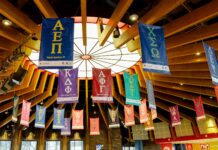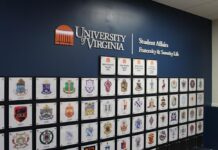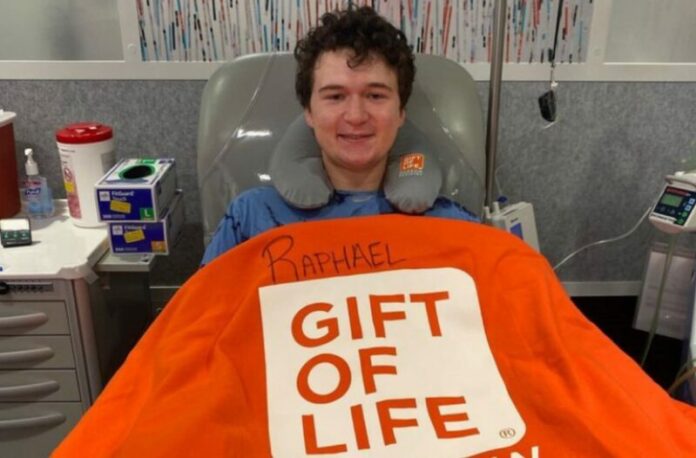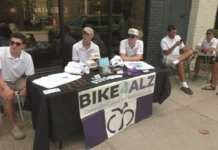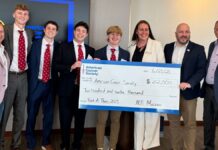The fraternity has swabbed over 16,000 people in its 19-year partnership with the non-profit, which finds matches for people in need of bone marrow or stem cells transplants
When Raphael Eidelman was called to donate to Gift of Life, a bone marrow and blood stem cell registry with headquarters in Boca Raton, Fla., he saw it as an opportunity to give back.
He was an Alpha Epsilon Pi International Fraternity (AEPi) brother at California State University – Northridge (CSUN). His brothers liked to have fun, Eidelman told eJewishPhilanthropy, but were also sensitive and caring, saying “I love you” to each other. They were involved in tikkun olam, with most jumping at the opportunity to enter the Gift of Life registry, an AEPi partnership since 2004. A year and a half after he swabbed himself, he was given the opportunity to save a life. The person he donated stem cells to in March 2022 was a close genetic match, so he figured they were an Ashkenazi Jew. He saw his donation as a chance to “do something for the Jewish community like the Jewish community at CSUN has done for me,” he said. “There’s a sense of brotherhood among all Jewish people, whatever fraternity they may be in, whatever social group, it doesn’t matter.”
Since AEPi first partnered with Gift of Life, the nonprofit has swabbed over 16,000 students through the fraternity, sparking 613 matches, and saving 80 lives. For Gift of Life – and Jews in general – 613 matches represents a significant milestone, matching the 613 commandments in the Torah. They hit the notable number on February 5. Gift of Life was launched in 1991 by Jay Feinberg, who was diagnosed at age 22 with leukemia that year, right as he was beginning law school. “I was diagnosed and told that the likelihood of finding a match for me was like looking for a needle in a haystack,” Feinberg told eJP, “and the reason for that was because my background was Eastern European Jewish. The reason behind that is purely biological, the fact that we inherit our genetics from our parents, who inherited it from their parents, and so on and so forth. It spans generations.” Tissue type, like hair color, is inherited. The more diversity there is in a registry, the more possible matches that can occur. Gift of Life reports that, should a sibling need a bone marrow transplant, even brothers and sisters from the same parents have only a 25% chance of being a match; as a result, 70% of people, according to the nonprofit, don’t have a match in their family.






